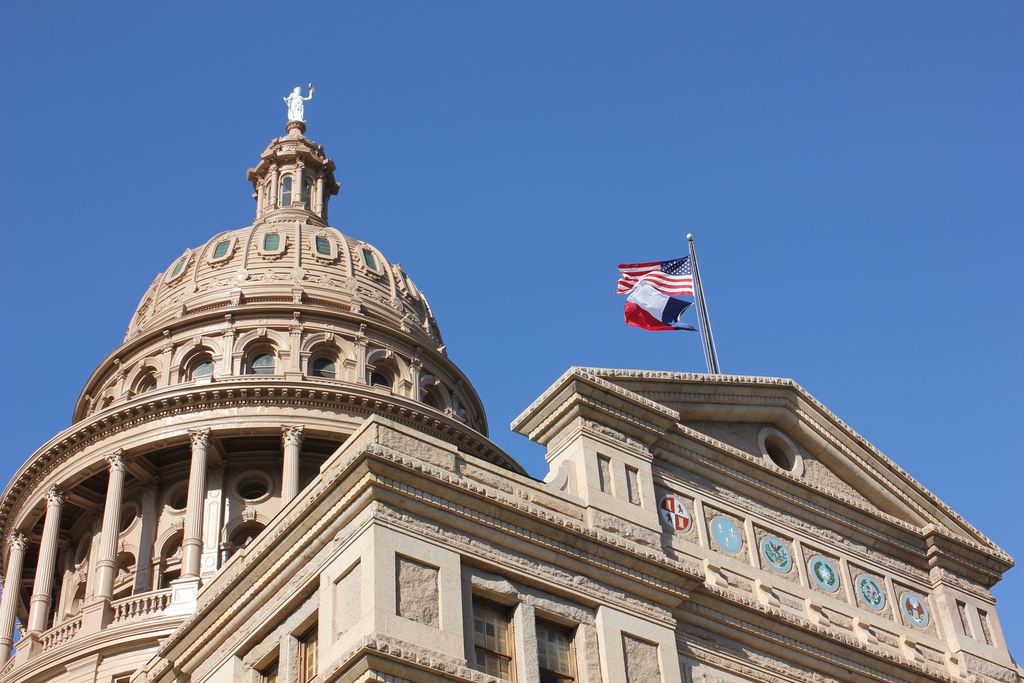
Open Government Under Debate in TX Legislature
Now that more than 60 days have passed since the start of the Texas legislative session, we’re past the deadline for legislators to file non-emergency bills. Here’s a rundown of bills that could have an effect on transparency and open government this session.
If you’re interested in contacting your legislators to support open data, you can use openstates.org to find out whose districts you’re in and get their offices’ phone numbers. If you want to alert us to something we missed, or just join Open Austin’s discussion about policy, you can join the #policy channel in the Open Austin community on Slack
Bills that increase openness in government
HB 2044 (authored by Senfronia Thompson, pictured below) has openness provisions about traffic stops and police discipline records, as well as provisions dealing with police use of force in other ways. It’s supported by the Austin Justice Coalition.

HB 2596, among other things, would require home-rule municipalities to provide GIS files of its boundaries and extra-territorial jurisdiction. It would also require the production of a digital map to accompany annexation plans.
SB 407 and HB 792 would change the Public Information Act’s exception for contract bids, which contain competitive information. The bills would change the statute so that the exception didn’t apply once a contract was awarded. The Statesman published a Freedom of Information Foundation editorial strongly supporting these bills, which were introduced in response to a Texas Supreme Court case called Boeing v. Paxton. The Texas Tribune wrote about the Boeing decision, saying it prevented disclosures about Uber’s operations in Houston, among other things.
In the same editorial in the Statesman Kelley Shannon, executive director of the Freedom of Information Foundation of Texas, endorsed two other bills:
“The Freedom of Information Foundation of Texas and other open government advocates are pressing for additional transparency measures in the Legislature. House Bill 2670 attempts to improve access to public records stored in private email accounts and on private electronic devices. House Bill 2710 seeks to resume access to dates of birth in certain public records, including crime documents and election filings, which fosters accuracy and informs the public.”
HB 793 would expand the definition of “governmental body” to particular contractors. This could include private entities that operate toll roads. According to the Statesman editorial, HB 793 would supersede the Greater Houston Partnership Texas Supreme Court decision.
Finally, HB 623 would require the creation of a web portal for state criminal justice data including reports submitted to the Attorney General.
Bills that cut back on open government
HB 526 would amend the open-records statute to entitle only residents to public information. (Currently, anyone can submit a public-information request and governmental entities have a duty to fulfill them under the terms of the Government Code.) In addition to restricting the free flow of public information, this could be burdensome to both persons making requests and entities fulfilling them if the residence of the person requesting needs to be verified.
HB 1258 would prevent anyone, including the state government, from allowing online public access to court records currently held by counties. The state Office of Court Administration was planning on allowing access to the records through the state’s new PACER-like database called “re:SearchTX”. Even though the fees for the state database will be exorbitant at up to $6 per document, Chief Justice Hecht of the Texas Supreme Court thinks it will be an improvement for people who can’t afford a lawyer. The Texas Tribune quotes Hecht as saying “We’re talking about tens of thousands of people for whom getting a court record is probably impossible, at least practically…It’s just crucial. It’s important for transparency. The media and the public at large have a very fundamental interest in the public justice system.” A bill that blocks the state’s court record database from becoming available to the public will probably be a negative for open government.
HB 3107 lets government bodies impose limits on the amount of records they’re required to disclose to a single requestor per month or year. The limits are determined by the amount of staff time used to produce the records, which creates the risk that governments will reduce their obligation to disclose records by using inefficient methods to produce the records. The limits don’t apply to employees of news organizations, but it could be burdensome for people with reasonable records requests to prove their requests are sponsored by a qualified organization.
Continue the Conversation
Join the Open Austin community on Slack: Get an invite
RSVP for our future events on Meetup: RSVP
Follow us on Twitter
& Like us on Facebook